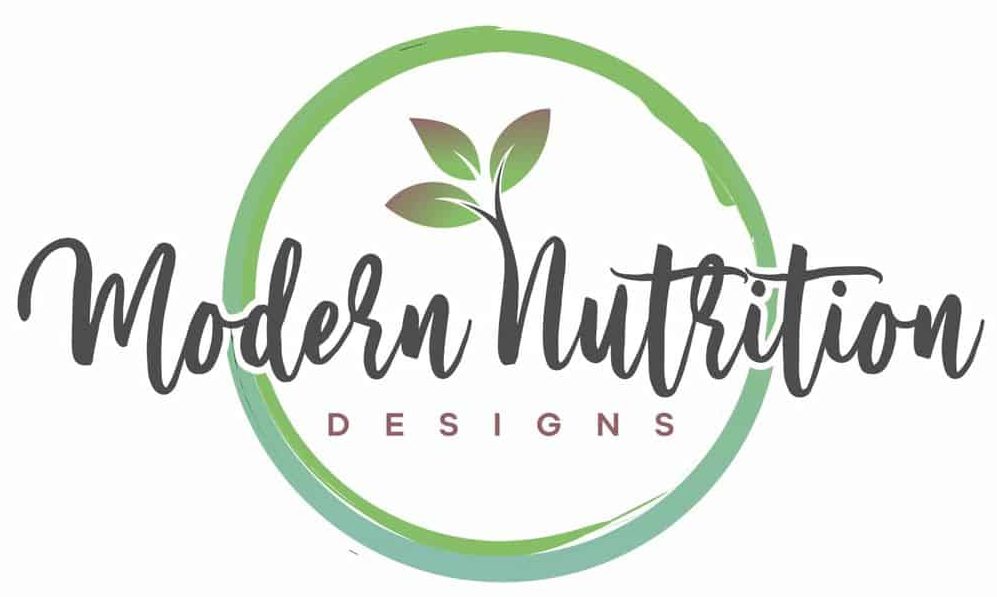First off, if you are a breastfeeding mama, or planning on breastfeeding in the near future, I would like to congratulate you! Breastfeeding is the single most important decision you can make for your precious bundle of joy. Now, deciding to eat plant-based during your breastfeeding journey may just be your second greatest decision!
Mothers who nurse their babies on a whole foods plant-based diet provide their child with all the necessary nutrients for proper growth and development. More and more pediatricians are beginning to see the benefits of this lifestyle.
Whether you have been vegan for years, or are just starting your transition, this article will provide you with everything you need to safely and successfully provide your baby with the most nutrient-dense breast milk.
This article will cover the following:
- Plant-based basics for lactation
- Daily food requirements for plant-based mamas
- Best vegan protein sources during breastfeeding
- Supplementation for plant-based lactation
- Current research on plant-based breastfeeding
- Vegan foods that have been reported to increase production of breastmilk
- Major takeaways on how to breastfeed successfully on a plant-based diet
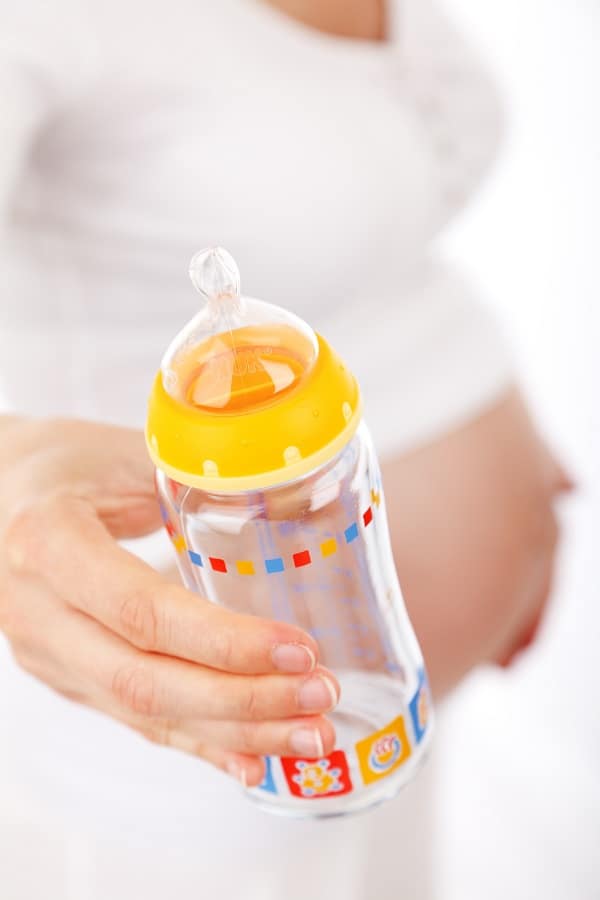
Women receive more unprompted advice during pregnancy than likely any other point in their lives. Every mama wants to share what worked well for them to provide you with some experienced reassurance.
As helpful and as well-meaning as some of those bits of advice may be, they can also be harmful when people begin providing outdated nutritional guidance for mom and baby. I guarantee you will be reluctantly defending your stance on your decided veganism during pregnancy/breastfeeding. Unfortunately, our culture has not caught up with the science.
Don’t worry! I will provide you with all the tools you need to confidently maintain your healthful dietary decisions made on behalf of you and your baby.
Before we take a look at the research, let’s go over some basic dietary requirements for breastfeeding mamas who choose to go the plant-based route.
Plant-based basics to consider while breastfeeding
According to the National Institute of Health, “A completely plant-based diet is suitable during pregnancy, lactation, infancy, and childhood, provided that it is well-planned.” In order to meet the energy requirements for lactation, vegan women should eat a wide variety of whole plant foods.
Typical vegan diets are greatly lacking in many essential nutrients, which are nutrients our bodies require but are unable to generate on their own. Thus, we must acquire essential nutrients from external dietary sources.
When I say “typical vegan diet”, I am referring to the junk food vegan diet.
Many vegans live on potato chips, soda, highly processed meat and cheese substitutes, deep-fried frozen meals, and vegan cakes, cookies, and candy. This is not the version of a vegan diet that I am recommending.
The term “vegan” simply refers to the foods a person DOES NOT eat, i.e. animals and their constituent products. The term “whole foods plant-based” refers to what the person DOES eat, i.e. vegetables, fruits, whole grains, seeds, nuts, and legumes.
As long as you are not simply replacing meat, eggs, and dairy with processed vegan substitutes, you and your baby should meet all your dietary requirements during the months/years you are nursing.
Daily food requirements for plant-based mamas
Instead of processed vegan junk, focus on the whole plant-based categories listed here:
Whole Vegetables
- potatoes
- squash
- broccoli
- carrots
- bell peppers
- corn
- leafy greens
- celery, etc.
Whole fruits
- avocado
- oranges
- apples
- grapes
- berries
- melons
- pineapple
- pears, etc
Whole grains
- rice
- oats/oatmeal
- whole-grain pasta
- whole-grain bread, pancakes, waffles, muffins, etc.
- whole-grain tortillas
- whole-grain cereals and granola
- quinoa
- whole buckwheat, amaranth, teff, rye, bulgur, barley, etc.
Legumes
- lentils
- chickpeas
- kidney beans
- pinto beans
- black beans
- peas
- soybeans
- bean sprouts, etc.
Nuts & Seeds
- walnuts
- pecans
- cashews
- almonds
- hemp seeds
- chia seeds
- flax seeds
- sunflower seeds, etc.
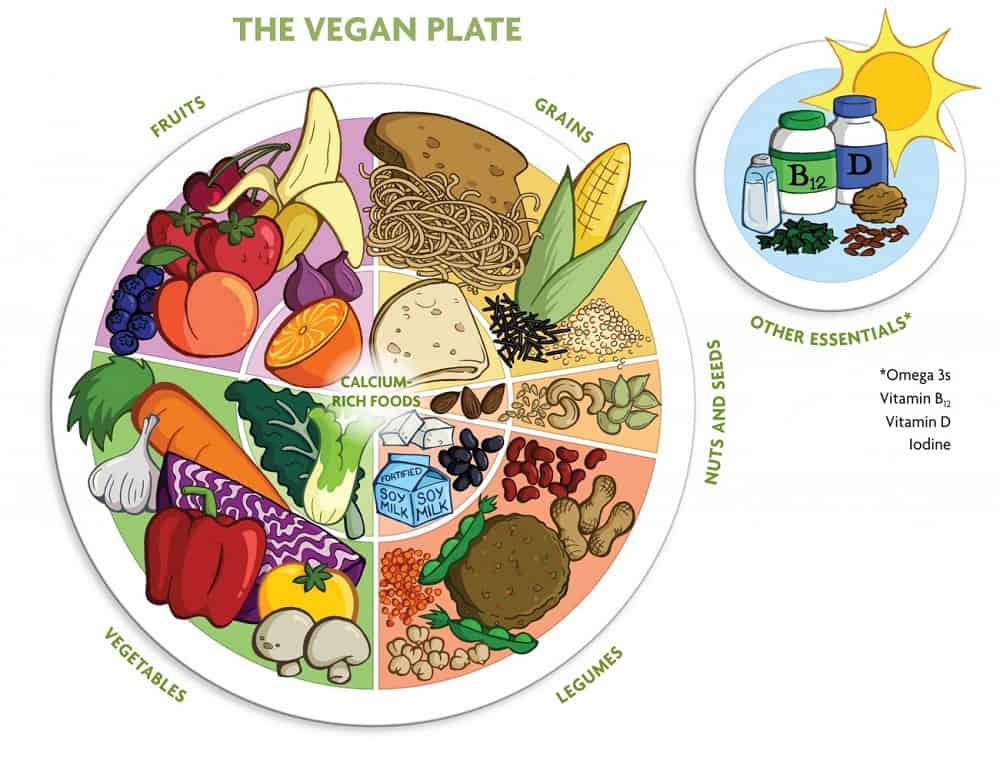
Protein, fiber, omega-3 fatty acids, iron, zinc, iodine, calcium, vitamin D, and vitamin B12 are the essential nutrients the NIH determined as, “specific areas to pay attention to when eating plant-based while breastfeeding”.
As long as you are getting enough calories and eating foods from each of these categories daily you will meet your requirements for most of the priority areas highlighted by the NIH.
Information on acquiring your daily requirements of vitamin D, B12, and DHA are listed below under “Supplementation for plant-based breastfeeding mothers”.
Best vegan protein sources during breastfeeding
For in-depth coverage on the general topic of vegan protein basics please click here to view my post titled, Can Vegans get Enough Protein from Their Diet: How to Tell.
According to La leche league, vegan mother’s require 65 grams of protein while breastfeeding between months 0-6, and 62 grams of protein per day between months 6-12.
The following is a list of the best vegan protein sources for nursing mamas:
- lentils
- beans: black beans, pinto beans, kidney beans, lima beans, soybeans, cannellini beans, great northern beans, adzuki beans, etc.
- oatmeal
- quinoa
- whole-grain pasta
- teff
- wild rice
- couscous
- kamut (wheat berries)
- cornmeal
- nuts: almonds, cashews, pecans, walnuts, Brazil nuts, hazelnuts, etc.
- seeds: hemp seeds, chia seeds, pumpkin seeds, sesame seeds, flax seeds
Incorporate some of these foods into your meals each day and you will reach well above your daily protein requirements for lactation.
Supplements for plant-based breastfeeding mothers
There are four supplements that I am currently taking to ensure my daughter receives all of her nutrients through my breastmilk. I have done a lot of research to arrive at the following recommendations:
- Vitamin B12 1,000 mcg/day
- DHA (from algae sources) 200mg/day
- Iodine 290 mg/day
- Vitamin D3 (vegan sources) 5,000 IU (125mcg) /day
For details on the above supplements and why several authorities recommend them please visit my earlier post titled A Full Guide to Safely Raising a Vegan or Plant-based Baby. Iodine is the only supplement not covered in the aforementioned post.
According to the CDC, women who are breastfeeding who do not consume dairy products nor iodized salt regularly should take 290 mg of iodine daily through supplementation.
Iodine is essential for thyroid function. It is naturally found in sea vegetables such as kelp, arame, wakame, and dulse. You can sprinkle these vegetables in soups or salads at least three times per week or use a pinch of iodized salt daily, according to Dr. Klaper.
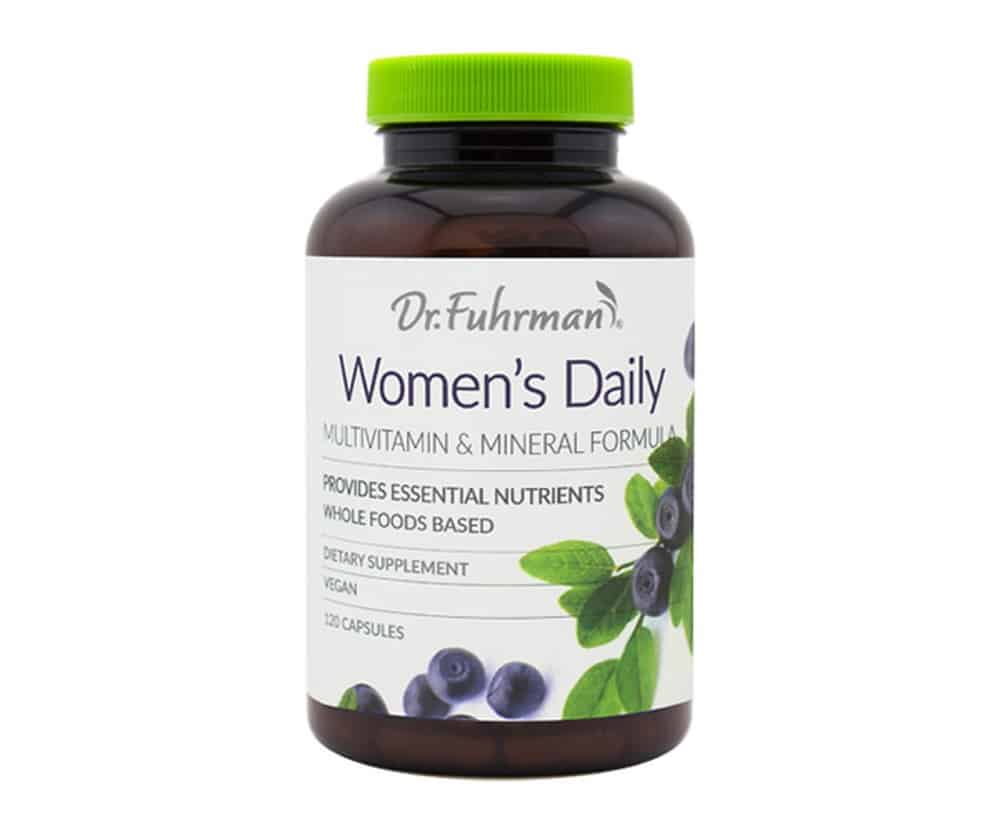
I would give you my personal review on this multivitamin but I recently ordered it myself, so I will keep you posted! What I like about it is that it contains all of the essential recommended nutrients most plant-based mamas are unable to receive from their diet alone.
Be sure to speak with your doctor or pediatrician regarding your plans to go plant-based and what supplements you are considering.
Current research on plant-based diets and breastfeeding
Enjoy this short introduction video on Industrial pollutants in Vegans created by Dr Michael Greger! He does a great job of laying out the science in an easily digestible manner.
Bear with me through the upcoming literary review, as some of the terminology may sound a little heavy. It is essential, however, to understand where this knowledge and advice come from in order for readers to feel confident in their dietary decisions.
Findings from a recent study comparing vegan, vegetarian, and non-vegetarian moms found a lower prevalence of low birth weights among non-meat consuming mothers. The results also displayed more desirable breastfeeding behavior in babies born from vegan moms. Overall, the research showed that both vegan and vegetarian diets are associated with healthy pregnancy outcomes.
Another study explains how many of the environmental chemicals commonly found in human milk come from the mother’s diet. Up to 90% of the harmful PCBs (polychlorinated biphenyls) and other lipid-soluble dioxin-like chemicals are stored in human fat cells. This is attributed to dietary intake.
PCBs are manmade chemicals that are extremely resistant to temperature and pressure. According to the Illinois Department of Public Health, “commercial production of PCBs ended in 1977 because of health effects associated with exposure.” Some adverse health effects caused by PCBs include liver damage, cancer, birth defects, and skin lesions.
“These chemicals are found at higher concentrations in fatty foods such as red meat, dairy products, and fish”, according to researchers. Meat eaters, in general, tend to harbor more POPs (persistent organic pollutants) than people eating predominantly vegetarian diets. Some examples of POPs are dioxin, pesticides, and PCBs.
The study also explains how it is critical to maintain your weight during pregnancy to reduce the mobilization of fat stores. The fat mobilization would excrete additional PCBs, (environmental contaminants) from the mother’s fat stores into the milk. As you may read in my subsequent post, (coming soon) the easiest way to maintain a healthy weight naturally is by consuming a whole foods plant-based diet.
Changing one’s diet during pregnancy and/or lactation is considered a significant means of reducing the baby’s exposure to these harmful chemicals.

Vegan foods that may increase breastmilk production
Steel-cut oatmeal is the only specific food I have found to potentially increase my milk production. I also make sure to drink plenty of water due to the high water content in breast milk.
These tips are anecdotal at best, however. I was unable to find any concrete evidence behind the ability of certain foods of any sort to assist with increasing milk production.
According to the research reviews conducted by the NIH, however, there have not been any studies showing conclusive results on particular foods or nutrients that increase milk production. Even added water, total calories, and protein supplementation did not seem to influence milk production from a dietary standpoint.
The NIH studies did recommend the following to maintain an adequate supply of breastmilk:
- Manage your stress levels
- Be sure to get adequate sleep
- Exercise regularly
- Breastfeed or pump your breasts frequently
- Allow the baby/breast-pump to drain your breasts completely at each session
Personally, I have found the above recommendations to be very successful in maintaining adequate milk production.
The only time I notice a significant drop in my milk production is when I do not get adequate sleep, I do not manage my stress successfully, or if I skip a pumping session.
Keeping a regular pumping/feeding schedule is critical. Try to maintain the same amount of sessions per day around the same time-periods and you should produce sufficient amounts of breastmilk. Another great tip would be to keep a frozen supply of breastmilk to ensure your baby will always have milk if you are unable to produce enough, (for whatever reason). This will dramatically reduce the pressure to constantly be producing large amounts.
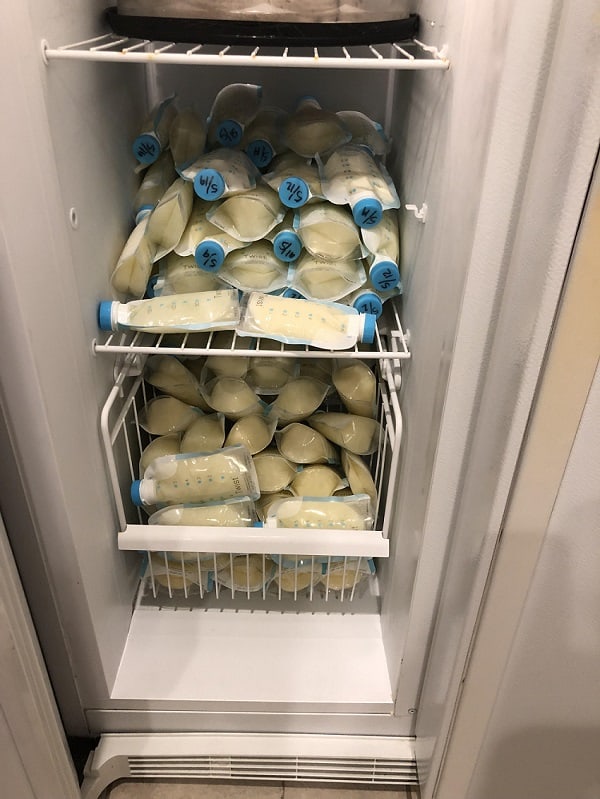
Major takeaways on how to breastfeed successfully on a plant-based diet
- Talk to your doctor or pediatrician prior to making any major changes. Keep in mind that many medical doctors are still in the dark when it comes to the benefits of a plant-based diet. Come prepared for your visit with the latest research on this lifestyle. Feel free to use the resources linked in this post.
- Eat an abundance of food items from each of the following categories: vegetables, fruits, whole grains, nuts, seeds, and legumes.
- Be sure to supplement with the recommended doses of iodine, DHA, vitamin-B12, and vitamin-D3.
- Only you truly know what is best for you and your baby. Do your research and make informed decisions
- Take care of yourself! Get plenty of rest. Exercise regularly. And find ways to decompress. It is difficult to make a sufficient milk supply and take care of your baby when you are not at your best.
Karli Jackson
